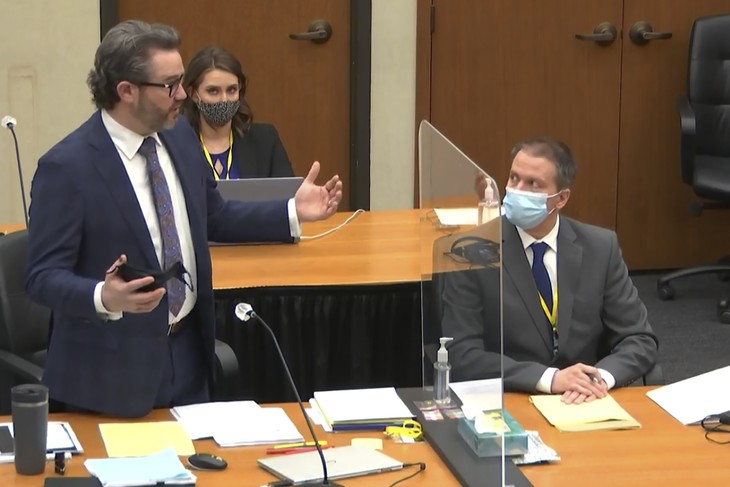
Derek Chauvin’s legal team has just filed for a new trial in his case. Chauvin was convicted on April 20 of three counts in the death of George Floyd – second-degree murder, third-degree murder, and second-degree manslaughter.
His attorney, Eric Nelson, is alleging multiple grounds for the new trial, including jury misconduct.
In the filing, Chauvin’s attorney says the former officer should have a new trial in the “interests of justice; abuse of discretion that deprived the Defendant of a fair trial; prosecutorial and jury misconduct; errors of law at trial; and a verdict that is contrary to law.”
“The jury committed misconduct, felt threatened or intimidated, felt race-based pressure during the proceedings, and/or failed to adhere to instructions during deliberations, in violation of Mr. Chauvin’s constitutional rights to due process and a fair trial,” attorney Eric Nelson writes in the filing.
Nelson also claims that the court failed to sequester the jury during the trial, which resulted in their exposure “to prejudicial publicity regarding the trial during the proceedings, as well as jury intimidation and potential fear of retribution among jurors.”
Also among the nearly dozen bases for the motion cited in the filing, Nelson claims the court “abused its discretion and violated Mr. Chauvin’s rights under the Confrontation Clause” when it “failed to order” Morries Hall, a key witness in the trial, to testify or admit into evidence his statements to police. Hall was in a car with Floyd the day he died. Judge Peter Cahill quashed a subpoena for him to testify.
“The cumulative effect of the multiple errors in these proceedings deprived Mr. Chauvin of a fair trial, in violation of his constitutional rights,” writes Nelson, who is requesting a hearing to impeach the guilty verdict.
Nelson also argued that the “publicity here was so pervasive and so prejudicial” that it amounted to a “structural defect” and that the court “abused its discretion” when it didn’t order a change of venue or sequester the jury prior to jury deliberation.
The prosecution replied in a statement that the court had already rejected some of these arguments.
There were multiple questions raised about the jurors, for example.
In addition to the failure to sequester the jurors earlier in such a highly publicized case, there was a partial doxxing of the jurors by media, that could place them at risk and/or feel that they were at risk. You had one alternate juror saying that she had to move around protesters in order to go to her home in Brooklyn Center each night, so there was an acute awareness of the protests. She also said, “I did not want to go through rioting and destruction again and I was concerned about people coming to my house if they were not happy with the verdict.” The question, of course, is whether that was material to her decision or the decision of any of the jurors.
As we wrote earlier today and on Monday, one juror, Brandon Mitchell, presented more problematic issues. He has made comments since the verdict, talking about how if people “want to see some change,” they have to get onto juries to try to “spark some change.”
On top of that, he admitted that he went to a protest in Washington, D.C. on August 28, 2020, which was a remembrance of the March on Washington. But it was also named the “Get Your Knees Off Our Necks” Protest. A picture that he admits his uncle posted allegedly shows Mitchell in a BLM hat and shirt with the same provocative expression on it. When asked about his attendance, Mitchell mentioned the remembrance to the March on Washington but claimed the protest was “100%” not about George Floyd, despite the fact that Floyd’s family members spoke there and Al Sharpton invoked everyone to say his name. Mitchell also claimed he had no recollection of owning or wearing the shirt. On his jury selection questionnaire, he was asked if he attended any protests having to do with police abuse and he answered “no.” The question of a false or erroneous answer on the jury questionnaire could raise an issue if the court thought it material, for example.
